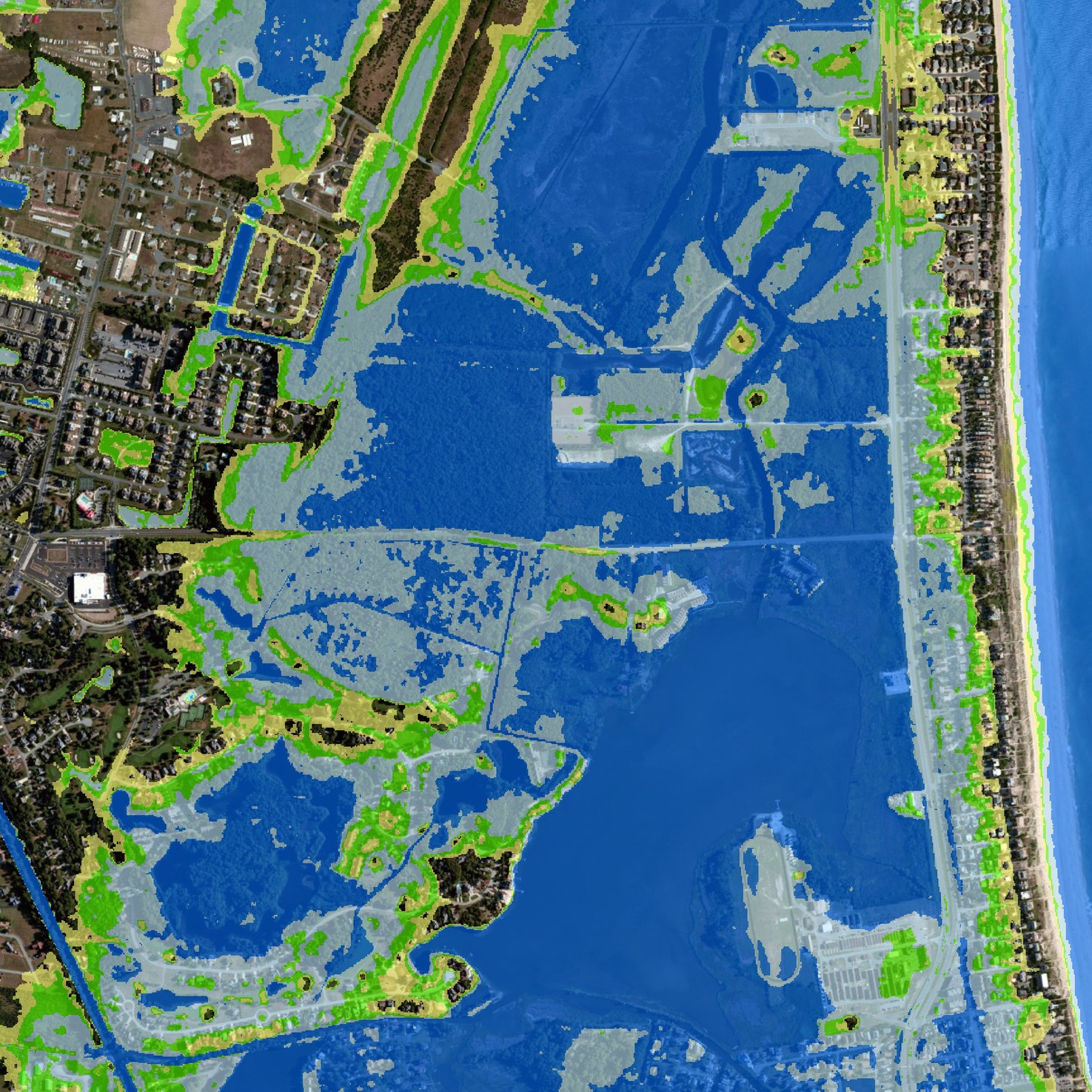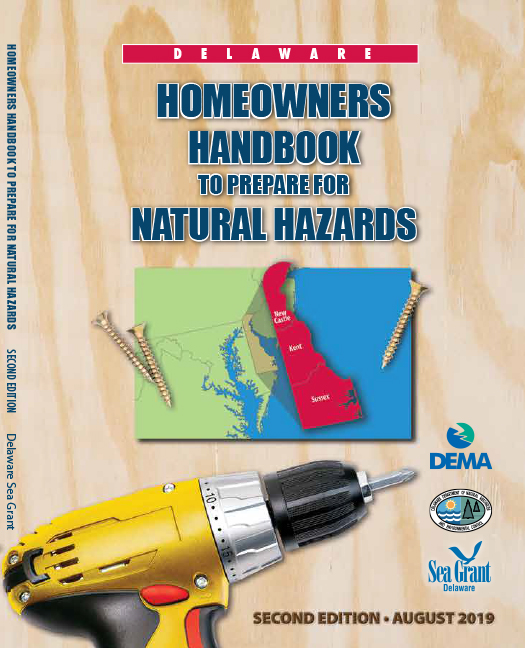
We work with communities and stakeholders to mitigate natural risks to people and coastal infrastructure
Changes in the coastal environment, from sea level rise and storm-induced flooding to beach erosion and rip currents, pose significant threats to Delaware's communities, coastal economy, and people. Delaware Sea Grant partners with communities and stakeholders to identify natural risks, promote adaptation strategies that develop resilience, and encourage the sharing of knowledge and experience across the coast.
Emergency Preparedness
Workshops for Community Members
Delaware Sea Grant offers workshops tailored for older adults, adults with special needs and their caregivers to help build residents’ preparedness for emergencies, whether caused by coastal storms or other factors.
Participants in past workshops have received training on evacuation routes and shelters, emergency supply kits, and managing health and mobility issues during the workshop and were given the opportunity to fill out an emergency health communications card. They could also engage with emergency responders, healthcare providers, agencies, and businesses who exhibited information on the services available to older adults before, during, or after emergency events. Read more >>
Building Coastal Resilience
Providing communities with the expertise and tools needed to identify hazards and effect change to thrive in the face of change
Delaware Community Rating System User Group
Delaware Sea Grant is working with local communities to lower flood insurance premiums under the National Flood Insurance Program by undertaking flood prevention and preparation measures such as preserving undeveloped floodplain or relocating flood-prone infrastructure. Find out more about FEMA's Community Rating System.
Analyzing Flooding in Slaughter Beach
Delaware Sea Grant is partnering with the University of Delaware's Center for Environmental Monitoring and Analysis to identify how flood waters move through the town of Slaughter Beach, DE, and develop mitigation measures to reduce future flooding.
Delaware Resilient and Sustainable Communities League
A partnership between Delaware Sea Grant, the University of Delaware, and numerous state agencies and non-profits, the Resilient and Sustainable Communities League (RASCL) is bringing together community and business leaders, state managers, and scientists to share experiences and best practices for making communities more resilient to the effects of climate change. Learn more about RASCL
Adaptation Training
Many of the coastal communities in Delaware are situated on low-lying lands between beach and marsh, making them particularly vulnerable to coastal flooding as sea level rises. Delaware Sea Grant is helping communities adapt to a future of rising coastal waters and increased flooding by providing training on the many measures that communities can take to thrive in the face of change. These adaptation trainings are targeted towards community leaders, state managers, and local businesses and are offered throughout the year
Resilience Resources
Seaside to Statewide: The Economic Contributions of Delaware's Coastal Region
This report provides an updated evaluation of the economic significance of Delaware's coastal economy, indicating significant growth and development since the previous 2012 study. Download the full report here
Additional downloads:
Beach and Surf Safety
The beach and ocean can be a summer retreat, but it can also present dangers like rip currents and rogue waves. Delaware Sea Grant is leading a campaign to educate beachgoers about the hidden risks by placing signs at popular beaches and distributing brochures highlighting surf safety.
Understanding Flood Risk
Delaware's coastal communities face a future of more severe and more frequent flooding as a result of sea level rise and intensifying coastal storms.
Preparing for flooding requires understanding how frequently floods happen and whether your home is exposed to flood risk. Delaware communities and homeowners have a number of resources available to them to protect property and lives. To learn more, explore our Flood Risk Portal.















